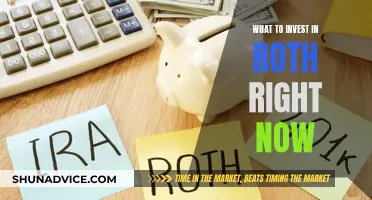
Whether or not a VC will invest in an LLC depends on a variety of factors. While it is possible to raise venture capital funds as an LLC, many venture capitalists prefer to invest in corporations. This is because corporations have a more predictable management structure, and corporate taxation can reduce the amount of tax VCs will have to pay on their investments. Additionally, some VC investors are tax-exempt and would be unable to deal with funds passed through an LLC.
| Characteristics | Values |
|---|---|
| Tax implications | LLCs are taxed as pass-through entities, meaning LLC owners pay taxes on their percentage of ownership in the LLC's profit, whether or not they made money. This complicates the personal tax situation of investors, who are taxed on the entity's income even in years when no cash is distributed to them personally. |
| Stockholder rules | Some investors, such as venture capital funds, can't invest in pass-through companies like LLCs because they have tax-exempt partners. Additionally, some VCs manage public funds, barring them from investing in LLCs. |
| Investor taxation in other states | If the business has an active trade or business in other states, passive investors may become subject to income tax in those states. |
| Investor preference for C-Corps | Investors in early-stage businesses usually want a simple investment, to acquire a capital asset (stock), and to avoid intervening tax complications until the stock is sold. C-Corps are more predictable and stable, and investors are more familiar and comfortable with them. |
| Management structure | LLCs have a flexible management structure, while corporations have a more predictable structure with specific rules, such as appointing a board of directors and hiring officers. This allows VCs more control and stability. |
| Exit strategy | C-Corps offer a better exit strategy for VCs, who eventually want to sell their interest or have an initial public offering (IPO). Most companies that go public are C-Corps, and LLCs are more complicated to transfer or sell partial ownership in. |
What You'll Learn

Tax implications
Venture capitalists (VCs) typically prefer to invest in C-Corporations over LLCs due to the tax implications of the latter. LLCs are taxed as pass-through entities, meaning that the company itself is not taxed—instead, LLC owners pay taxes on their percentage of ownership in the LLC's profit, whether or not they have received cash distributions. This structure can complicate the personal tax situation of investors, who may be taxed on the entity's income even when no cash is distributed to them personally.
In contrast, C-Corporations are taxed at the corporate level, and investors only pay taxes on what they receive in dividends. This structure allows VCs to offset future revenues with losses for tax purposes.
Additionally, some VCs have tax-exempt partners, such as pension funds or foreign entities, which cannot receive active trade or business income due to their tax-exempt status. Investing in an LLC could potentially create a tax headache for these tax-exempt entities, as they would be taxed on the profits of the business.
Furthermore, C-Corporations offer more flexibility in terms of taxation. For example, C-Corps can offer preferred stock, which pays higher dividends and prioritises stockholders in liquidity events. On the other hand, S-Corps, like LLCs, are also "pass-through" entities, presenting the same tax issues for VCs.
While C-Corporations are subject to double taxation, this is not a significant concern for Software as a Service (SaaS) businesses focused on growth and expansion. These companies aim to reinvest their profits to fuel growth and attract more investors, rather than distributing dividends.
To summarise, the tax implications of LLCs can deter or even prevent VCs from investing. The pass-through taxation of LLCs can create unwanted tax complications for investors, while C-Corps offer more favourable tax structures and opportunities for tax efficiency.
Amazon Stock: Buy or Bye?
You may want to see also

Corporate vs pass-through taxation
When it comes to taxation, there are two main options for businesses: corporate taxation and pass-through taxation.
Corporate Taxation
Corporate taxation refers to the system where the company itself pays corporate taxes on the income it earns. This is typically done through a C-corporation structure, where the company is taxed separately from its owners or shareholders. The profits of a C-corporation are subject to double taxation: first at the corporate level, and then again at the shareholder level when dividends are distributed. While this structure may result in higher taxes for the business owners, it can provide certain benefits such as the ability to offer stock options and the potential for greater flexibility in attracting venture capitalist investors.
Pass-Through Taxation
Pass-through taxation, on the other hand, is a system where the business income is "passed through" to the owners, who then pay taxes on their individual tax returns. In this structure, the business itself does not pay entity-level taxes. Pass-through entities are typically sole proprietorships, partnerships, or S-corporations. LLCs can also be taxed as pass-through entities, depending on the circumstances. One of the main advantages of pass-through taxation is the avoidance of double taxation, as the business income is only taxed once at the owner level. However, this structure may not be favourable for businesses seeking venture capital investments, as it can complicate the personal tax situation of investors.
Comparison
The choice between corporate and pass-through taxation depends on various factors, including the size of the business, the number of owners or shareholders, and the plans for future growth and investment. Solo entrepreneurs and small businesses often prefer pass-through taxation due to its simplicity and the avoidance of double taxation. On the other hand, medium and large companies, particularly those seeking venture capital investments, may favour corporate taxation despite the higher tax burden. It is important for business owners to carefully consider their options and seek professional advice to determine the most suitable structure for their specific circumstances.
Retirement Reinvented: Exploring the Top Investment Havens for Savvy Seniors
You may want to see also

Stockholder rules
Venture capitalists (VCs) are investors who provide funding to young companies and entrepreneurs to get their businesses off the ground in exchange for company equity. VCs can take up to 50% of a new company's ownership, and they can also offer business mentoring and take on leadership roles to protect their investment.
When it comes to investing in limited liability companies (LLCs), VCs face some challenges due to stockholder rules and the nature of LLCs. Here are some key considerations regarding stockholder rules and how they impact VC investment in LLCs:
- Tax Implications: LLCs are often taxed as pass-through entities, which means the company itself is not taxed. Instead, the owners or members of the LLC pay taxes on their share of the profits. This can be unattractive to VCs, as they may prefer the corporate taxation structure where taxes are paid at the entity level and then again when distributed to shareholders.
- Stockholder Rules and Pass-Through Companies: Some VCs, such as venture capital funds, cannot invest in pass-through companies like LLCs because they have tax-exempt partners. These tax-exempt entities cannot receive active trade or business income, which is a requirement for investing in an LLC.
- Public Funds Management: Additionally, some VCs manage public funds, which legally bars them from investing in LLCs.
- Investor Type Restrictions: Venture capital firms are often organized as limited partnerships, which restricts them from investing in certain types of companies. For example, they are restricted from investing in S-corporations, which require "natural persons" as investors.
- Growth Limitations: S-corporations also have a maximum limit of 100 stockholders, which can hinder the growth potential of the investment for VCs.
- Corporate Governance: VCs prefer the predictable management structure of corporations, where there is a clear board of directors and defined roles. LLCs, on the other hand, offer more flexibility but may lack the stability and control that VCs seek.
- Stock Advantages: Corporations issue stock, which provides VCs with more opportunities and flexibility. They can take advantage of preferred shares, stock options for employees, and easier stock sales compared to selling ownership interest in an LLC.
- Exit Strategy: VCs often focus on the potential for an initial public offering (IPO) or a sale of the business. The most common vehicle for an IPO is a C-corporation, making it a more attractive investment choice than an LLC.
- Fiduciary Duties: In some cases, stockholders or members of an LLC may be deemed controllers and owe fiduciary duties. This can impact breach of fiduciary duty actions, particularly in merger and acquisition (M&A) transactions. VCs may prefer the clearer boundaries offered by the corporate structure.
- Complexity of Equity: LLCs often have more complex equity structures than corporations, which can be less familiar to executive talent. VCs may prefer the simpler and more widely understood equity structure of corporations.
In summary, while it is not impossible for VCs to invest in LLCs, the stockholder rules and the nature of LLCs present several challenges and restrictions. VCs often prefer the more predictable and flexible structure of corporations, which aligns better with their investment strategies and exit plans.
Strategic Retirement Planning: Maximizing an $850,000 Investment
You may want to see also

Corporate management structure
A corporate management structure is a way to protect the interests of a company's stockholders or stakeholders. The most common structure in the United States consists of a board of directors and a management team. The board of directors is made up of inside directors, who are part of the company's day-to-day operations, and outside directors, who are independent and can make impartial judgments. The management team usually includes at least a Chief Executive Officer (CEO), a Chief Financial Officer (CFO), and a Chief Operations Officer (COO).
The board of directors is responsible for overseeing the work of the management team and setting the long-term strategic direction of the company. They are elected by the shareholders and act as an advocate for them, ensuring their interests are well served. The board chair, or leader of the board, works closely with the CEO to formulate the company's business strategy and maintain strong communication.
The CEO is the top manager and is responsible for the entire operation of the organisation, carrying out the board's decisions and initiatives. The CFO oversees the finances and reports on financial performance to the board, while the COO is in charge of marketing, sales, production, and personnel, taking a more hands-on approach than the CEO.
A well-structured company is better equipped to achieve its goals and maximise profits. There are several types of organisational structures, including functional, divisional, matrix, and hybrid. The functional structure groups employees by similarity in skill sets and tasks, while the divisional structure organises business activities into specific market, product, service, or customer groups. The matrix structure combines these two approaches, allowing for decentralised decision-making and greater autonomy. The hybrid structure, adopted by many large organisations, divides its activities into functional or divisional departments, allowing for resource utilisation and product specialisation.
When it comes to venture capital (VC) investment, VCs tend to prefer investing in corporations due to their predictable management structure and taxation benefits. LLCs, or limited liability companies, are often seen as less attractive due to their tax implications and more complex equity structure. However, some VCs may be willing to invest in LLCs if they can provide the potential for a future initial public offering (IPO) and offer a more flexible deal structure.
AGNC Investment Dividends: Payout Patterns and Frequency
You may want to see also

Exit strategy
Exit strategies are an essential part of the venture investing process. They are plans implemented by investors to sell their stake in a financial asset if specific criteria are met. A well-planned exit strategy is critical for a startup company as it helps investors maximize their returns on investment and minimize their risks.
- Initial Public Offering (IPO): An IPO is when a company sells shares of its stock to the public for the first time. This is typically the most lucrative exit strategy for investors, as it can lead to significant returns if the company's stock performs well. However, IPOs are unpredictable and difficult to time correctly, especially in volatile investment climates.
- Acquisition: An acquisition is when another company buys out a startup. This exit strategy can be good for investors who want a quicker return on their investment, as acquisitions can happen relatively quickly. However, acquisitions tend to result in lower returns for investors than IPOs.
- Secondary Market: A secondary market is a marketplace where investors can buy and sell shares in private companies. This exit strategy can be suitable for investors who want to exit a company before it goes public or gets acquired. However, secondary markets can be illiquid, and finding a buyer for shares can be challenging.
- Buyback: A buyback occurs when a company repurchases shares of its own stock from investors. This exit strategy can be attractive to investors seeking a quick and easy way to exit a company. Nevertheless, buybacks generally result in lower returns for investors than IPOs or acquisitions.
When deciding on an exit strategy, it is essential to consider the stage of the company, the industry it operates in, and the investors' goals. Timing is also crucial, as exiting too early or too late can impact the returns that investors receive.
VCs must exit their investments at some point. It is built into the structure of the investment vehicle. VCs act as a cog in the machine, taking cash from limited partners (LPs), delivering it to startups, and ultimately returning more cash to the LPs. The two basic exit strategies for VCs to get a return on their investment are:
- Being acquired by another company for cash and/or publicly traded stock.
- Going public through an IPO, turning illiquid private stock into publicly traded stock.
While it is possible for VCs to invest in an LLC, there are several challenges and complications. One of the main problems is the tax implications, which deter or even prevent VCs from investing. The focus of VCs on achieving an exit, such as an IPO or acquisition, is complicated by the LLC structure. Converting ownership in an LLC to profits for VCs is challenging.
Additionally, the management structure of an LLC is more adaptable but less predictable than a corporation. This can be a disadvantage for VCs who seek more control and stability in their investments. The corporate structure, with its appointed board of directors and hired officers, allows VCs to have more influence and a clearer understanding of the company's direction.
In summary, while VCs can technically invest in LLCs, the exit strategy may be more complicated due to tax implications and differences in management structure. Corporations are generally preferred by VCs due to their predictable structure and the opportunity for higher returns through an IPO or acquisition.
Australia: Invest Now?
You may want to see also
Frequently asked questions
Yes, a VC can invest in an LLC. However, many venture capitalists prefer not to, instead investing in corporations. This is because LLCs are taxed as pass-through entities, which can complicate the personal tax situation of investors.
Venture capitalists often prefer corporations because they are more stable and predictable, with a clear management structure. Corporations also offer preferred shares, stock options, and a better exit strategy.
LLCs offer pass-through taxation, meaning the LLC passes gains through to its owners on a tax-free basis. Owners are then solely taxed at a personal level.
LLCs can attract VC investment by setting up an intermediate 'blocker' corporation. The VC fund invests in the 'blocker' corporation, which then invests in the LLC. This ensures that any gain or loss is allocated to the 'blocker' corporation and not to the limited partners of the VC fund.







